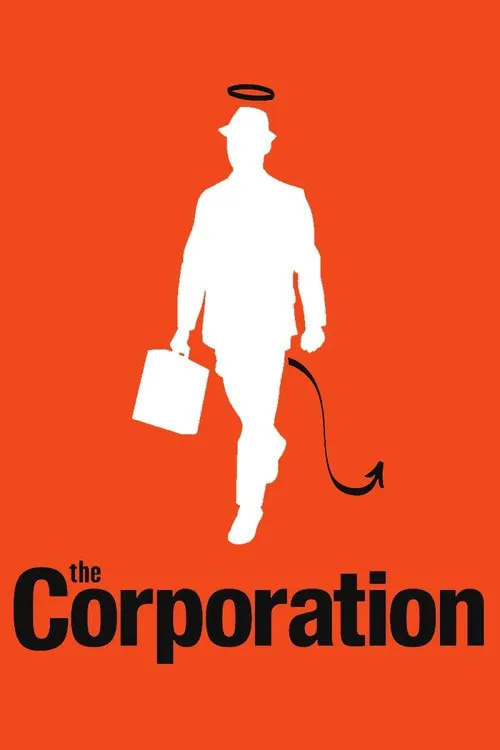The Corporation

Plot
The Corporation, a documentary film directed by Mark Achbar and Joel Bakan, delves into the psychological and social implications of the modern corporation, examining its behavior and impact on the world. Based on the book "The Corporation: The Pathological Pursuit of Profit and Power" by Joel Bakan, the film uses various case studies and expert opinions to illustrate the corporation's psychopathic tendencies. The documentary begins by analyzing the origins of the corporate model, tracing it back to the American legal decision in the late 18th century that deemed a business corporation a legal "person." This ruling gave corporations personhood, allowing them to make decisions, enter into contracts, and own property, similar to human individuals. However, this newfound status also granted them a distinct set of characteristics that would ultimately lead to their destructive behavior. The film cites various case studies to demonstrate the corporation's psychopathic tendencies, including the notorious tobacco industry, which knowingly promoted a product that caused harm to consumers. Similar examples from the pharmaceutical industry, where companies prioritize profits over patient safety, and the environmental degradation caused by companies prioritizing their bottom line over sustainability. According to the film's narrative, the corporation's primary goal is not to contribute to society, but to maximize profits and expand its market share. This singular focus is at the root of the corporation's destructive behavior. The documentary highlights how corporations prioritize short-term gains over long-term sustainability, ignoring the social and environmental consequences of their actions. The film argues that the corporation's psychopathic tendencies are the result of its "organizational model," which dictates that the organization prioritize its own interests above all else. This is reflected in the hierarchical structure of the corporation, where employees are incentivized to serve the organization's interests, often at the expense of their personal values and ethics. The corporation's influence on society is profound, with the film highlighting its role in shaping government policies, manipulating public opinion, and controlling the media. Corporate interests often dictate the terms of public discourse, using their influence to shape policy and decision-making processes that serve their own interests. Despite the corporation's formidable influence, the documentary offers a message of hope, emphasizing that individuals can challenge and change the corporation's destructive behavior. It highlights the examples of courageous individuals and groups who have successfully confronted corporations, forcing them to adapt their behavior and prioritize the greater good. The film also explores the concept of "criminogenic" factors, which contribute to the emergence of psychopathic tendencies in individuals. Similarly, the corporation's behavior is also shaped by a set of "criminogenic" factors, including its organizational structure, incentives, and cultural norms. The documentary suggests that by understanding and addressing these factors, individuals can work to change the corporation's behavior and prevent its destructive outcomes. One of the most striking aspects of the documentary is its examination of the psychological profiles of corporate leaders. The film cites various studies and expert opinions that suggest that CEOs and other corporate leaders often exhibit traits characteristic of psychopathy, including a lack of empathy, impulsivity, and a grandiose sense of self-importance. Ultimately, The Corporation offers a powerful warning about the dangers of unchecked corporate power and the consequences of prioritizing profits above all else. By examining the corporation's behavior through a psychological lens, the film offers a nuanced understanding of the complex forces that drive its destructive behavior. However, the documentary also offers a message of hope, emphasizing that individuals can work together to change the corporation's behavior and create a more just and sustainable world. By examining the corporation's organizational model and advocating for changes to its structure and incentives, individuals can help to mitigate its destructive tendencies and ensure that corporations serve the greater good. The Corporation ends with a sense of urgency, emphasizing that time is of the essence in making changes to the corporation's behavior. As the documentary aptly puts it, the corporation's destructive tendencies pose a profound threat to the world and our future, but by understanding its behavior and working together to change it, we can create a more just and sustainable world for all.
Reviews
Recommendations




